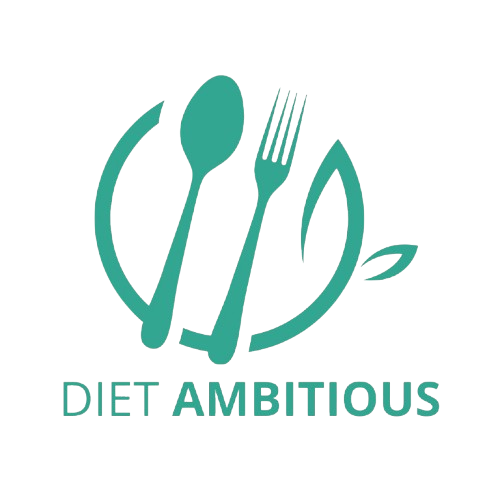A well-balanced diet is crucial for runners, as it helps fuel their body, aids in recovery, and boosts overall performance. Whether you’re training for a marathon, a 5K, or simply aiming to improve your running abilities, a structured 8-week diet plan can help optimize your nutrition and provide the energy you need for consistent, effective training.
Below, we’ll cover a general outline of an 8-week diet plan that includes essential nutrients and supports endurance.
Table of Contents
Week 1: Introduction to Proper Nutrition for Runners
The first week is about transitioning into a healthy eating routine that will support your training. Focus on establishing the foundation of your diet by ensuring you’re getting a good balance of macronutrients (carbohydrates, proteins, and fats) and micronutrients (vitamins and minerals). This is crucial for fueling your runs and helping in recovery.
Daily Nutrient Breakdown:
- Carbohydrates: 50-60% of your daily intake should come from complex carbohydrates like whole grains, fruits, and vegetables.
- Proteins: Around 15-20% of your daily intake should be lean protein sources such as chicken, turkey, tofu, eggs, and legumes.
- Fats: 20-30% of your intake should come from healthy fats like avocados, nuts, seeds, and olive oil.
Sample Day:
- Breakfast: Oatmeal with berries and almond butter
- Lunch: Grilled chicken salad with mixed greens, avocado, and olive oil dressing
- Snack: Greek yogurt with chia seeds
- Dinner: Quinoa with roasted vegetables and salmon
Week 2: Emphasizing Carbohydrates for Energy
As you continue training, your carbohydrate needs will increase. Carbs are the primary fuel source for runners, providing quick energy during runs. Make sure you’re consuming enough to power through your workouts.
Key Foods to Include:
- Brown rice, quinoa, oats, whole-grain pasta
- Sweet potatoes, fruits like bananas, apples, and berries
- Legumes like lentils and chickpeas
Sample Day:
- Breakfast: Whole-grain toast with scrambled eggs and avocado
- Lunch: Lentil soup with a side of whole-grain crackers
- Snack: A banana and a handful of almonds
- Dinner: Brown rice with chicken breast and steamed broccoli
Week 3: Incorporating Healthy Fats
Healthy fats play a vital role in long-distance running, helping with endurance and keeping your energy levels stable throughout the day. They also aid in recovery by reducing inflammation and providing essential fatty acids that the body cannot produce on its own.
Healthy Fat Sources:
- Olive oil, coconut oil
- Nuts, seeds, and avocado
- Fatty fish like salmon, sardines, and mackerel
Sample Day:
- Breakfast: Smoothie with spinach, banana, flaxseeds, and almond milk
- Lunch: Tuna salad with olive oil and mixed greens
- Snack: Hummus with carrot sticks
- Dinner: Grilled salmon with a side of roasted sweet potatoes and asparagus
Week 4: Increasing Protein Intake for Recovery
Week 4 focuses on protein, which is essential for muscle repair and recovery. As you continue to build strength and endurance through running, you need to ensure you’re getting enough protein to support muscle recovery and prevent injuries.
Protein-Rich Foods:
- Chicken, turkey, lean beef
- Tofu, tempeh, and legumes like beans and lentils
- Greek yogurt, cottage cheese, and eggs
Sample Day:
- Breakfast: Scrambled eggs with spinach and whole-grain toast
- Lunch: Quinoa salad with chickpeas, cucumber, and feta cheese
- Snack: Protein smoothie with almond milk, protein powder, and banana
- Dinner: Grilled turkey with roasted Brussels sprouts and quinoa
Week 5: Focus on Hydration and Electrolyte Balance
Staying hydrated is key for any runner. Dehydration can cause fatigue, muscle cramps, and poor performance. Focus on drinking plenty of water throughout the day and replenishing electrolytes after long runs.
Hydration Tips:
- Drink at least 8 cups of water a day (more if you’re running longer distances).
- Include electrolyte-rich foods like bananas, oranges, and coconut water to maintain electrolyte balance.
- Avoid sugary drinks and excessive caffeine, which can lead to dehydration.
Sample Day:
- Breakfast: Oatmeal with chia seeds, flaxseeds, and berries
- Lunch: Grilled chicken with brown rice, spinach, and avocado
- Snack: Watermelon and a handful of almonds
- Dinner: Whole-wheat pasta with marinara sauce and lean beef meatballs
Week 6: Refueling with Simple Carbs After Long Runs
After long runs or intense workouts, it’s essential to refuel with simple carbohydrates. Simple carbs, like those found in fruits and sports drinks, help to restore glycogen levels and give your muscles the energy they need for recovery.
Simple Carbs for Refueling:
- Bananas, oranges, apples, and berries
- Fruit smoothies with added protein powder
- Sports drinks that contain electrolytes (for after long runs)
Sample Day:
- Breakfast: Smoothie with banana, spinach, protein powder, and almond milk
- Lunch: Grilled fish with quinoa and roasted vegetables
- Snack: A banana and a handful of almonds
- Dinner: Chicken breast with roasted potatoes and steamed broccoli
Week 7: Incorporating Anti-Inflammatory Foods
As you get deeper into your training, it’s common to experience muscle soreness and inflammation. Incorporate anti-inflammatory foods to reduce soreness and promote faster recovery.
Anti-Inflammatory Foods:
- Berries, cherries, and apples
- Fatty fish like salmon, mackerel, and sardines
- Green leafy vegetables, such as spinach and kale
Sample Day:
- Breakfast: Chia pudding with blueberries and flaxseeds
- Lunch: Tuna salad with mixed greens, avocado, and olive oil
- Snack: Greek yogurt with honey and walnuts
- Dinner: Grilled salmon with quinoa and sautéed spinach
Week 8: Balancing Nutrition for Peak Performance
By Week 8, your body should be well-adapted to the nutrition plan. Maintain a balanced approach with proper macronutrient distribution, paying attention to your energy levels and recovery. This week, focus on a well-rounded diet to keep your performance at its best during the final days of training.
Sample Day:
- Breakfast: Whole-grain pancakes with fresh berries and honey
- Lunch: Grilled chicken salad with quinoa, avocado, and mixed greens
- Snack: Hummus with carrot sticks
- Dinner: Stir-fried tofu with vegetables and brown rice
Conclusion
This 8-week diet plan for runners provides balanced meals to support your training and recovery. By focusing on proper macronutrient distribution, hydration, and anti-inflammatory foods, you’ll ensure that your body is well-fueled and ready for peak performance. Remember to listen to your body, stay consistent with your nutrition, and adjust as needed for individual preferences or specific running goals.
For an in-depth and personalized approach, consult with a nutritionist who can tailor the plan to meet your unique needs, whether you’re training for a race or simply looking to maintain a healthy running routine.




